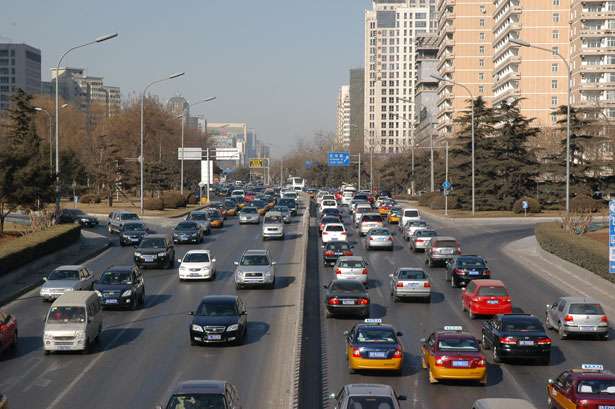
An international team of health experts, hygienists, pollution specialists and biostatisticians has found, via systematic review of almost 200 studies on air pollution, a strong positive association between long-term exposure to traffic pollution and an increase in death rates. In their paper published in the journal Environment International, the group describes how they approached their analyses and what they learned.
As the research team notes, prior studies have shown that air pollution is bad for people—not only does it harm the lungs and lead to a variety of diseases, but it can also cause eye, skin and bowel problems. And while many studies investigating the impact of air pollution on those who live in polluted areas have noted the role that automotive traffic plays in contributing to air pollution, fewer studies have looked at the impact of just traffic pollution on people. In this new effort, the researchers searched multiple sites looking for research studies with just that focus and found nearly 200 of them.
In looking at the data, the researchers found that work had been done in very different ways—some looked at the impact of traffic pollution on a single group, for example, such as teachers in California. Others were more regional, looking at cities such as Barcelona and Rome, while others looked at entire countries such as Japan and Denmark. They also found that most such studies came to the same conclusion—long term exposure to traffic pollution likely leads to increases in death rates, due mostly to increases in lung ailments such as cancer or COPD.
But the team also found something else—it is not just traffic emissions that have a strong association with health problems. Particles are also pushed into the air from the wear of tires and road surfaces and even pushing on brakes. They also found that bits of dust or dirt are forced into the air as cars travel swiftly down a road. Thus, even if cars are converted to electric power, they note, work needs to be done to reduce the health impact of billions of cars traveling on roads throughout the world.